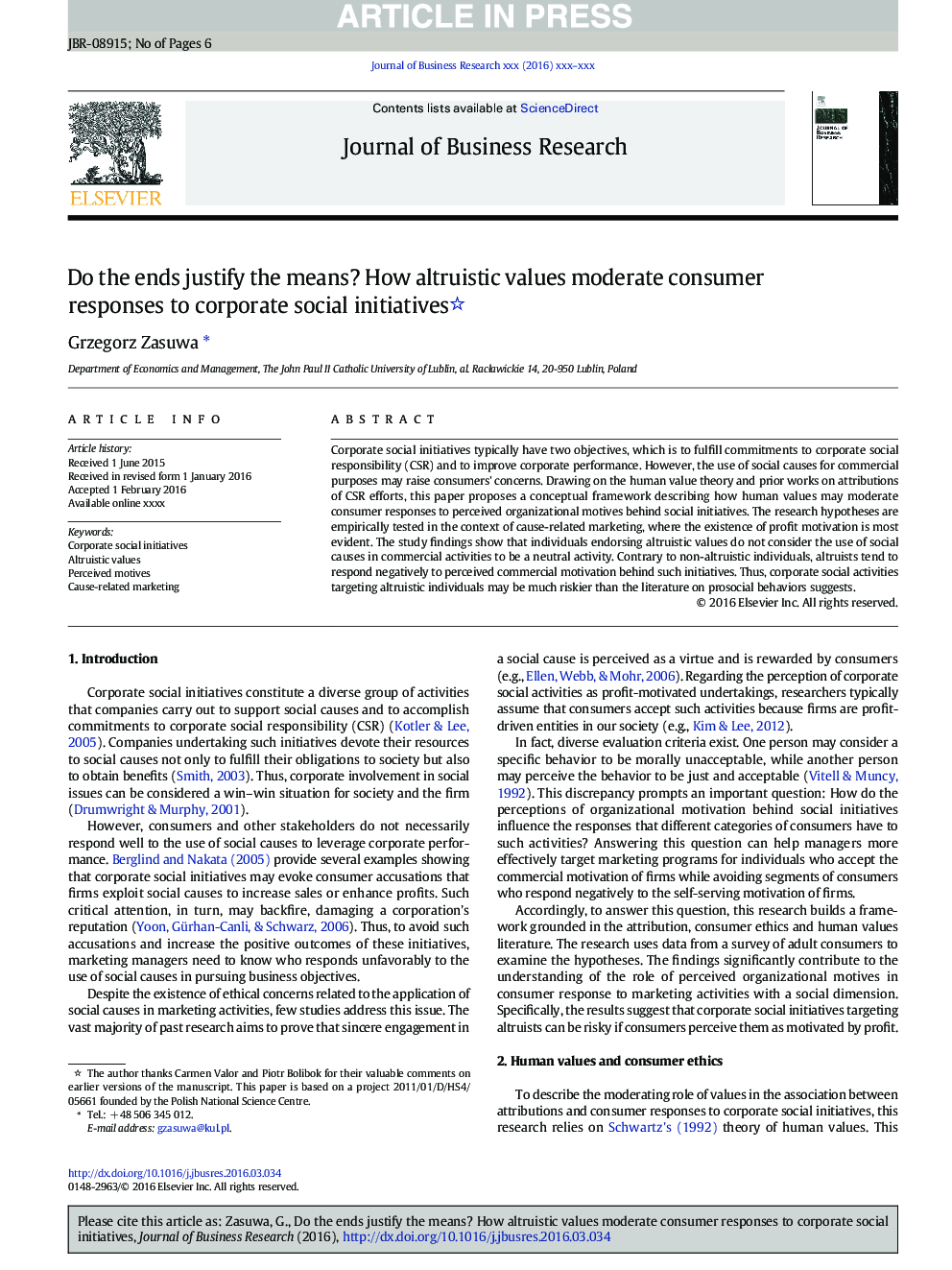| Article ID | Journal | Published Year | Pages | File Type |
|---|---|---|---|---|
| 10492544 | Journal of Business Research | 2016 | 6 Pages |
Abstract
Corporate social initiatives typically have two objectives, which is to fulfill commitments to corporate social responsibility (CSR) and to improve corporate performance. However, the use of social causes for commercial purposes may raise consumers' concerns. Drawing on the human value theory and prior works on attributions of CSR efforts, this paper proposes a conceptual framework describing how human values may moderate consumer responses to perceived organizational motives behind social initiatives. The research hypotheses are empirically tested in the context of cause-related marketing, where the existence of profit motivation is most evident. The study findings show that individuals endorsing altruistic values do not consider the use of social causes in commercial activities to be a neutral activity. Contrary to non-altruistic individuals, altruists tend to respond negatively to perceived commercial motivation behind such initiatives. Thus, corporate social activities targeting altruistic individuals may be much riskier than the literature on prosocial behaviors suggests.
Keywords
Related Topics
Social Sciences and Humanities
Business, Management and Accounting
Business and International Management
Authors
Grzegorz Zasuwa,
